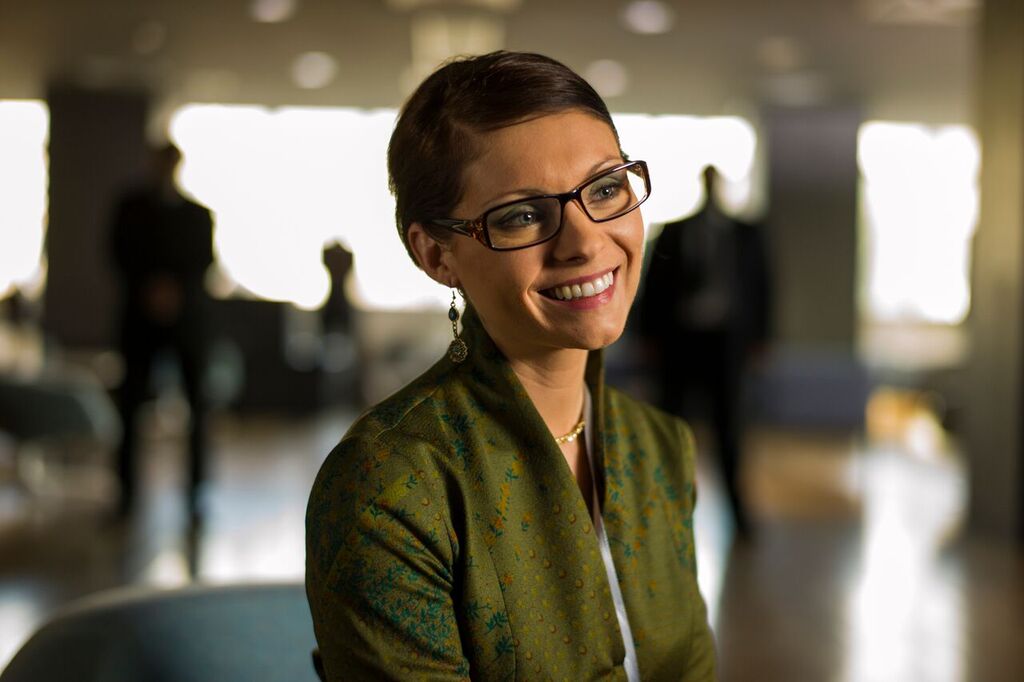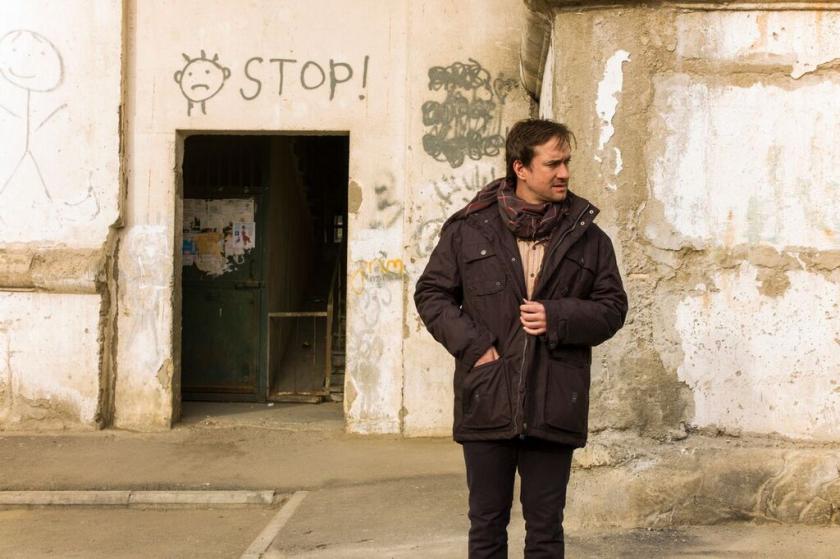Ah, the fascination of faraway countries of which we know nothing. And of dictators, always a species of interest to filmmakers, because you rarely have to make anything up – Chaplin, of course, wrote the primer on that one. How alluring when reality is already so much weirder than anything that can be invented.
Ben Hopkins’ Lost in Karastan plays on both tropes. It’s billed as a comedy, though the level of humour that communicates itself will perhaps depend on how well you already know the territory, which is that belonging to tin-pot leaders in obscure outposts of ex-empires who seek to put their nations on the map through cinematic projects. By making a film from the national epic, no less, drawing on a cast of second- or lower-tier talent from the wider world.
One thing lost in 'Karastan' seems to have been a certain element of humour
Hopkins and his co-writer Pawel Pawlikowski (of Ida fame) presumably know the ground from showing their work at remote and unlikely film festivals – one such event provides the opening gambit that gets Karastan going. Their producer here, Mike Downey, certainly does, because he’s been making films in these parts for years: from his recent work – it doesn't all make the big screen – you may have seen the commendable The President from Mohsen Makhmalbaf. That had the great Iranian director shooting on location in Georgia (Iran being presumably unavailable) a story about what happens after the titular leader gets dispatched.
Georgia provides the setting for Downey’s new one too, and a similar national hero-stroke-despot eventually gets a degree of come-uppance. It begins in London, though, with British film director Emil Forester (Matthew Macfadyen) being invited to screen his work (which is,we gather, rather of the avant-garde variety) in the aforementioned Autonomous Republic. Given that he’s rebounding from a failed marriage, and has only the dog and a cleaning lady for company (the mindfulness cassettes aside), why not?
 You wonder if Hopkins and Pawlikowski read Malcolm Bradbury’s equally inventive Why Come to Slaka? while they were making up Karastan, because they share a similar enjoyment of the more dire attributes of fictional nationhood. Though Karastan is somewhat darker than the relatively benign initial airport joke – “there is problem,” from the immigration guy, as shorthand for bribe – suggests. There are tanks on the streets – “we like tanks” – and the buildings are in various stages of dereliction (Georgia can’t have needed much of a make-over, then?). A sinister figure in a comparably derelict leather jacket frequently follows Forester around. Strong drink is poured. More spirit comes in some Balkans-style music.
You wonder if Hopkins and Pawlikowski read Malcolm Bradbury’s equally inventive Why Come to Slaka? while they were making up Karastan, because they share a similar enjoyment of the more dire attributes of fictional nationhood. Though Karastan is somewhat darker than the relatively benign initial airport joke – “there is problem,” from the immigration guy, as shorthand for bribe – suggests. There are tanks on the streets – “we like tanks” – and the buildings are in various stages of dereliction (Georgia can’t have needed much of a make-over, then?). A sinister figure in a comparably derelict leather jacket frequently follows Forester around. Strong drink is poured. More spirit comes in some Balkans-style music.
First there’s the film festival itself. Macfadyen’s character seems to have been attracted there by the voice of the impossibly glamorous and enigmatic Chulpan, who's the typical liaison for foreign guests at such events (I’m sure MyAnna Buring, pictured above, has played stranger roles, but just now I can’t think of them). The only other foreign presence is a z-list Hollywood actor who’s well into the alcoholic swing of things, and at least knew that attendance at such events is paid. Cue, among other surprises, Emil’s presenting something from his oeuvre – the one beginning with a heavy porn scene aboard a Liberian container ship – to an audience of school kids. “We are a young festival,” Chulpan insists, gamely. An experience they will never forget, Emil has to agree.
But that’s only half of it. Karastan’s president Abashilev (Richard van Weyden), in reality an unlikely customer who’s garnered a marketing degree from one of Britain’s liesser known educational establishments, is keen for Emil to direct a version of the national epic, the one about horsemen and the hero being raised by eagles. (You may recall that Kazakh epic Nomad, though only slightly given that the ranks of horsemen here are distinctly lonely). “The whole country is your film set,” the great leader offers, “I own it – no, the people own it – I own the people.”
It would spoil things to detail quite how wrong the filming experience goes, except to say that it must have sounded funnier in concept than in realisation. One thing lost in Karastan seems to have been a certain element of humour, though bits might return if viewed in the right audience – a Slavic studies conference, post-banquet, would be ideal. As with Bradbury’s Slaka, we’re left wondering just where the parody begins, and ends: perhaps that’s the thing about faraway countries of which we know, well, whatever... Then take a reality check: the film adaptation of the chosen national narrative of Azerbaijan – a country once memorably given the fictional moniker “Absurdistan” – opens at Sundance later this month. Its director? Asif Kapadia.
Overleaf: watch the trailer for Lost in Karastan















Add comment